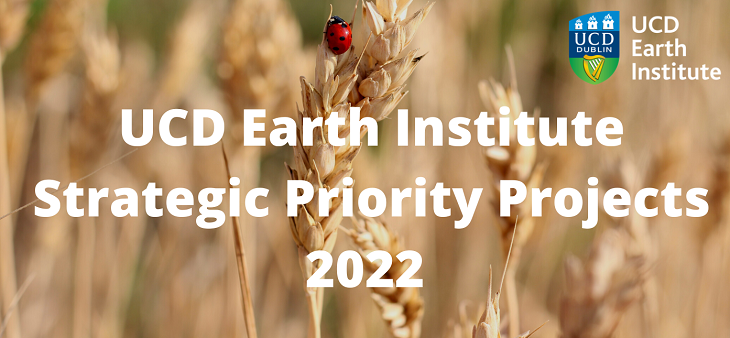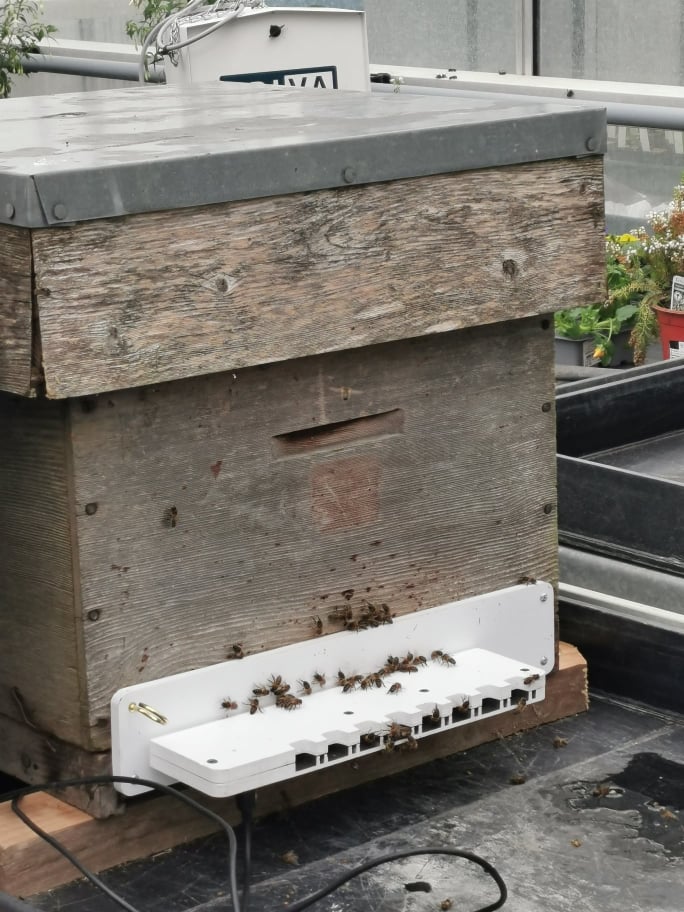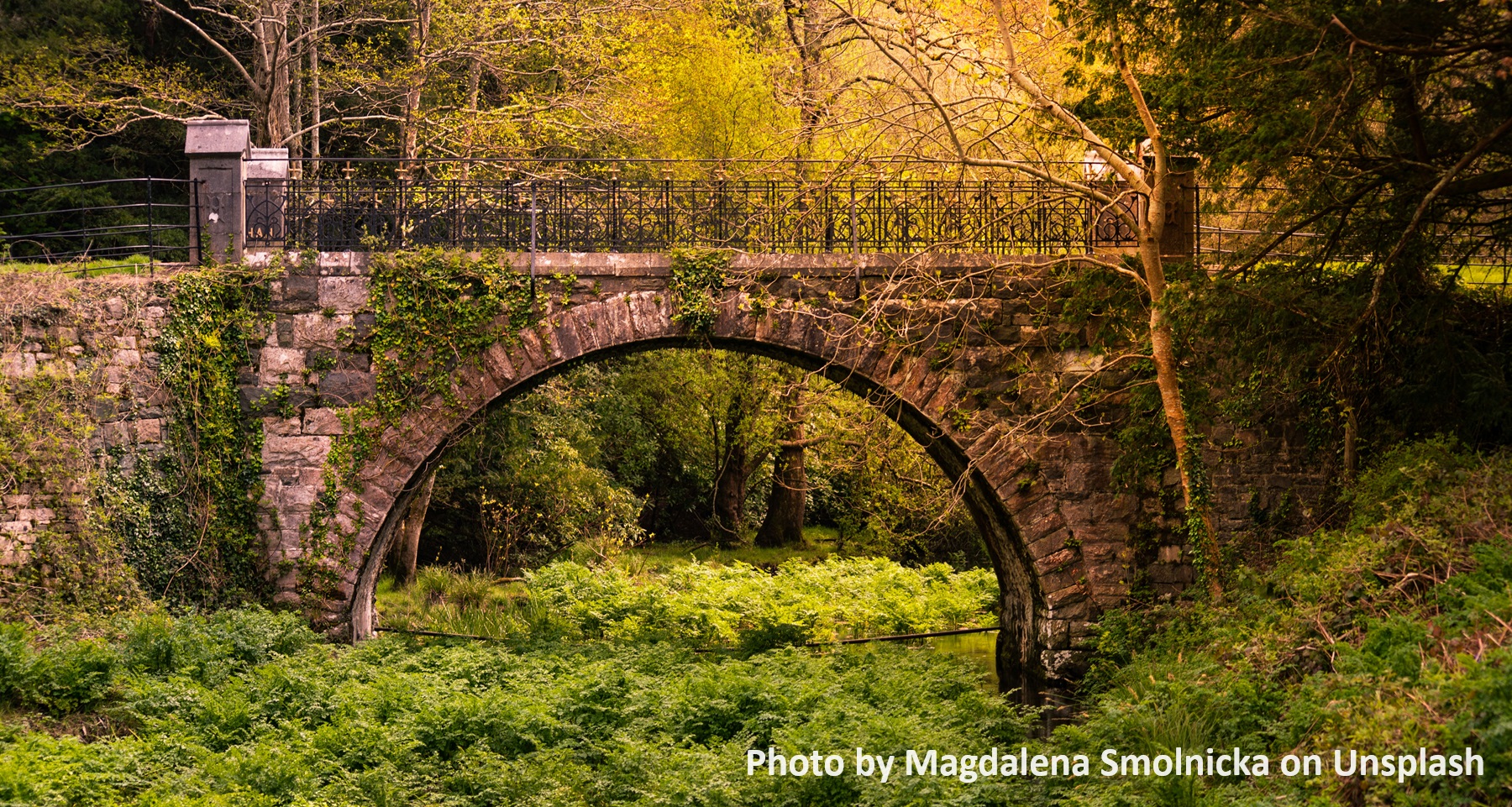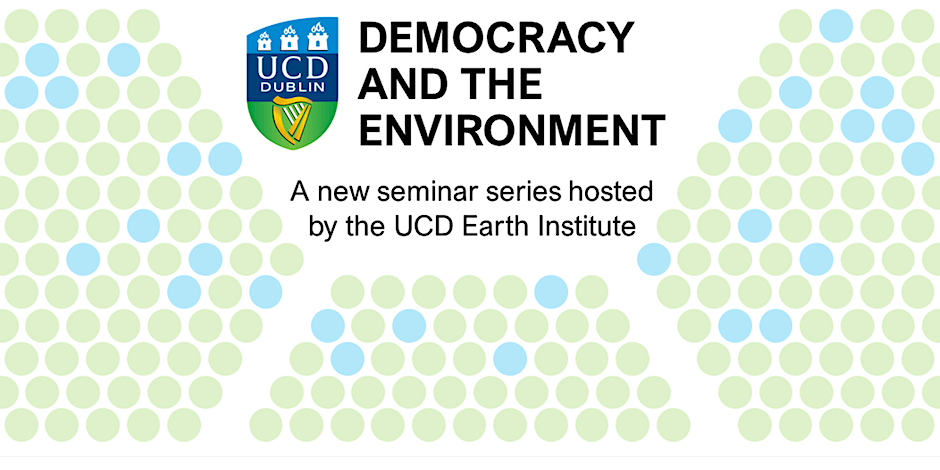New Earth Institute Strategic Priority Projects 2022

The Earth Institute is delighted to announce the four new strategic priority projects for 2022 supported by our Strategic Priority Support Mechanism (SPSM). The SPSM encourages interdisciplinary activity across the Earth Institute, UCD, and beyond, across environmental and sustainability research and related disciplines.
Earth Institute Director, Professor Tasman Crowe said, "We're delighted to see such interesting and diverse projects in this year's Strategic Priorities. The scheme is crucially all about fostering interdisciplinary collaborations to address urgent environmental and sustainability challenges. These four projects bring the total funded since the scheme started in 2018 to fourteen. We look forward to working with this year's awardees and to supporting and developing these projects".
The successful projects for 2022 are:
TREAH: Transport Research Hub @ UCD
Led by Páraic Carroll (Civil Engineering) with Aisling Reynolds-Feighan (Economics), Aoife Ahern (Civil Engineering), Geertje Schuitema (Business).
Transportation directly affects our lives in a myriad of ways, both positively by connecting people, goods and services and enabling participation in activities, and negatively via impacts on the environment, traffic congestion and health and safety concerns. Transport was responsible for 18% of sectoral emissions in 2021 and the decarbonisation of transport is a significant task to be addressed in the energy transition. The Transport Research Hub @ UCD (TREAH) seeks to bring together all transport researchers in UCD under one research umbrella to provide an identity for their research and engender greater collaborative output to address these challenges. TREAH will highlight the importance of transportation research in UCD and the value of interdisciplinary study of transport as they align with the many of the goals of the Earth Institute. It will raise broader awareness within and beyond UCD of the range, role and dynamism of transport analysis and experimental activities, especially in the context of the climate crisis and its vital role in the Sustainable Development Goals. TREAH also aims to contribute to development of policy and offer expert advice in relation to transportation options and solutions.
Data Farms and Urban Farms: Alternative Energy Flows Within Data Storage Infrastructure
Led by: Mary Harty (Agriculture and Food Science) and Clare Lyster (Architecture, Planning & Environmental Policy / UIC school of Architecture in Chicago) with Kevin McDonnell (Agriculture & Food Science) and Niamh Harbourne (Agriculture and Food Science)
This strategic priority aims to build a knowledge platform to explore the holistic integration of data storage facilities in the Irish landscape. It will facilitate collaboration between interdisciplinary thinkers at UCD from scientists, and horticulturalists to designers and industry experts and beyond to speculate on future productive industrial and cultural relationships between data storage and land use, as well as architectural and urban space. The immediate goal is to communicate the potential co-benefits between the data storage infrastructure and urban farming systems to “kick start” a conversation on alternative approaches to energy flows within data storage at the intersection of science and design.
Cultural Landscapes and Social Spaces (ClaSS)
Led by Brendan O’Neill (Archaeology) with Anita Radini (Archaeology) and Samantha Martin (Architecture).
From the prehistoric period to today, large numbers of people around the world make their houses from locally sourced, organic materials. These structures represent complex relationships between people (culture; society; knowledges), landscapes (places; ecologies), and materials (properties; sustainability), offering unique opportunities to consider interdependencies and intersubjectivities. Also, as intersections between local environment and the people that live and lived within them, these houses are important indicators of external pressures (i.e., climate change, mass migrations, pandemics, war). The core objective of ClaSS is to bring together networks of researchers from inside and outside UCD with already established research collaborators from Archaeological Open-Air Museums (AOM) in Ireland, Britain, and continental Europe. Together, we aim to develop specific research strands and questions using ‘the House’ as a focal point to consider wider themes, including material/architectural sustainability, human health and well-being, causes and impacts of change.
Just Transition Research Group (JTRG)
Led by Aparajita Banerjee (Business) and Geertje Schuitema (Business) with Julie Byrne (Business), Vikram Pakrashi (Mechanical and Materials Engineering), Anton van Beek (Mechanical and Materials Engineering), Nessa Winston (Social Policy, Social Work and Social Justice), Donna Marshall (Business), Hakan Karaosman (Business), Karen Foley (Architecture, Planning and Environmental Policy) and Páraic Carroll (Civil Engineering).
A zero-emission society is necessary for a sustainable future for all but this will require transformative changes in technology, society, human behaviour and institutional practices. A transition to a low carbon economy can be economically damaging as fossil fuel dependent regions face job loss and socio-economic deterioration. To limit such negative impacts on people and places, a just transition based on social justice principles is needed, to ensure a Just Transition (JT) for all. Researchers, policy makers, labour unions, civil society, businesses, and others now recognise that while a JT is essential, many challenges exist. Multidisciplinary, stakeholder engaged research can help inform JT processes through discussions, dialogues and dissemination activities. The purpose of the Just Transition Research Group (JTRG) is to increase knowledge and understanding of Just Transition topics by building a national and international research network, dissemination activities including a multi-stakeholder conference, and the creation of a website / database of Just Transition best practice, policy approaches and other materials.


